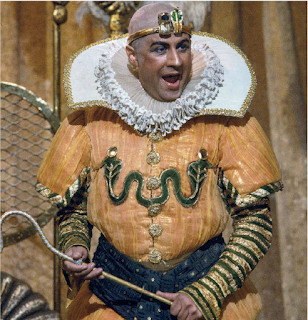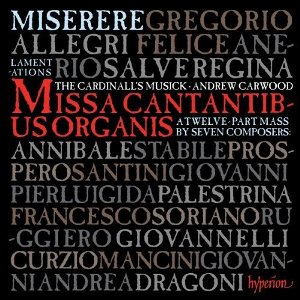Icons: James Bowman
In celebration of James Bowman's forthcoming 80th birthday, Edward Breen looks back on a long and splendid career which established the countertenor voice in mainstream musical life.
For more than three decades James Bowman was the figurehead of the countertenor revolution: his discography spans Leonin to Britten and beyond, he has performed with crumhorns, sung about Eglantine and firmly obliterated any notion of the countertenor as a limited voice.
As a teenager I was first bewitched by his recital with the Ricercar consort: Cantate Ad Alto Solo, especially his performance of Vivaldi’s Vestro principi divino, RV 633 (04/93) with its smooth lines and stylish sense of rhythm. I envied his warm, immediate sound and tried in vain to emulate the evenness of his lower register. It wasn’t long before I heard him sing Britten’s A Midsummer Night’s Dream and I was captivated anew. Like those who discover new films through the work of a favourite actor, I followed James Bowman through the countertenor repertoire unaware that at the same time his very performances were defining new boundaries for that voice. Coming a generation after both Alfred Deller - who spearheaded the countertenor revival in England - and the impressively stentorian-toned Russel Oberlin in America, Bowman offered something more straightforward, joyful and, crucially, robust. Live and on record his energy and enthusiasm were palpable.
To read the full text of this article please visit www.gramophone.co.uk (Awards issue 2021)
For more than three decades James Bowman was the figurehead of the countertenor revolution: his discography spans Leonin to Britten and beyond, he has performed with crumhorns, sung about Eglantine and firmly obliterated any notion of the countertenor as a limited voice.
As a teenager I was first bewitched by his recital with the Ricercar consort: Cantate Ad Alto Solo, especially his performance of Vivaldi’s Vestro principi divino, RV 633 (04/93) with its smooth lines and stylish sense of rhythm. I envied his warm, immediate sound and tried in vain to emulate the evenness of his lower register. It wasn’t long before I heard him sing Britten’s A Midsummer Night’s Dream and I was captivated anew. Like those who discover new films through the work of a favourite actor, I followed James Bowman through the countertenor repertoire unaware that at the same time his very performances were defining new boundaries for that voice. Coming a generation after both Alfred Deller - who spearheaded the countertenor revival in England - and the impressively stentorian-toned Russel Oberlin in America, Bowman offered something more straightforward, joyful and, crucially, robust. Live and on record his energy and enthusiasm were palpable.
[...]



Comments
Post a Comment